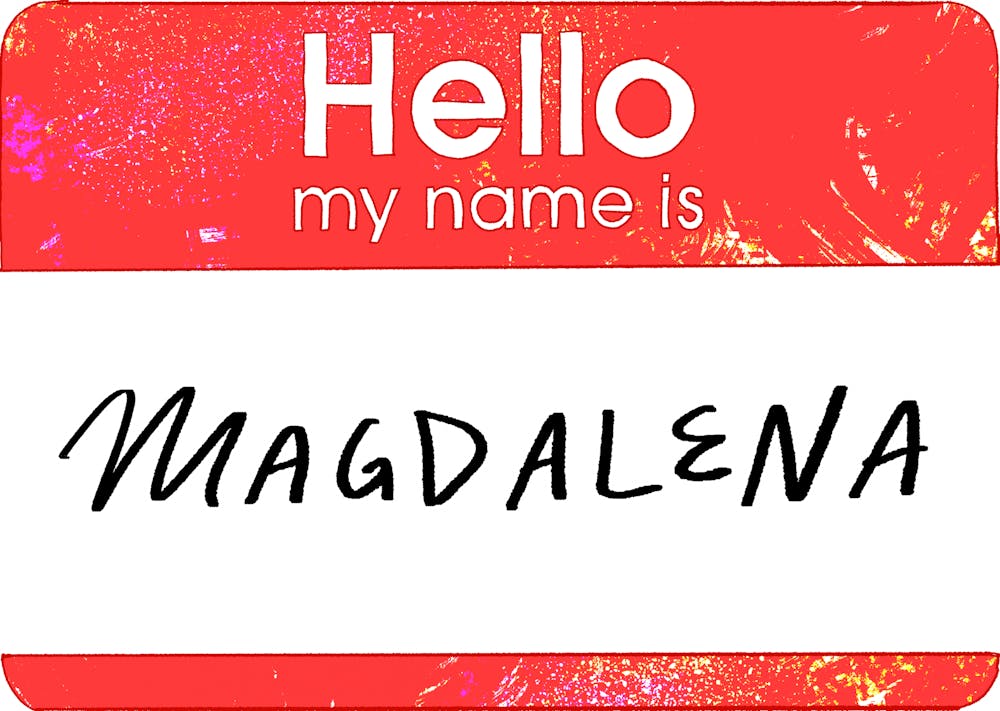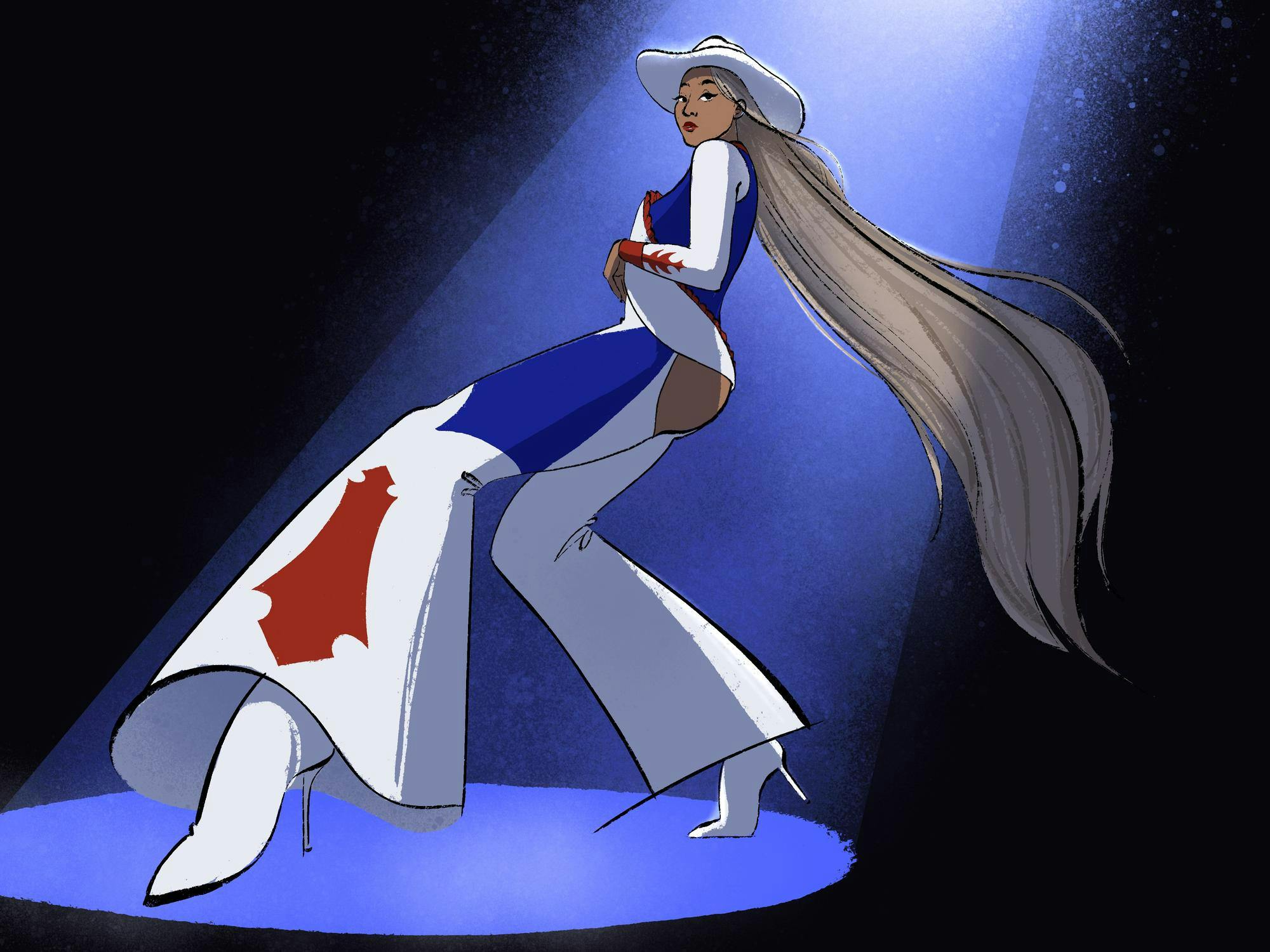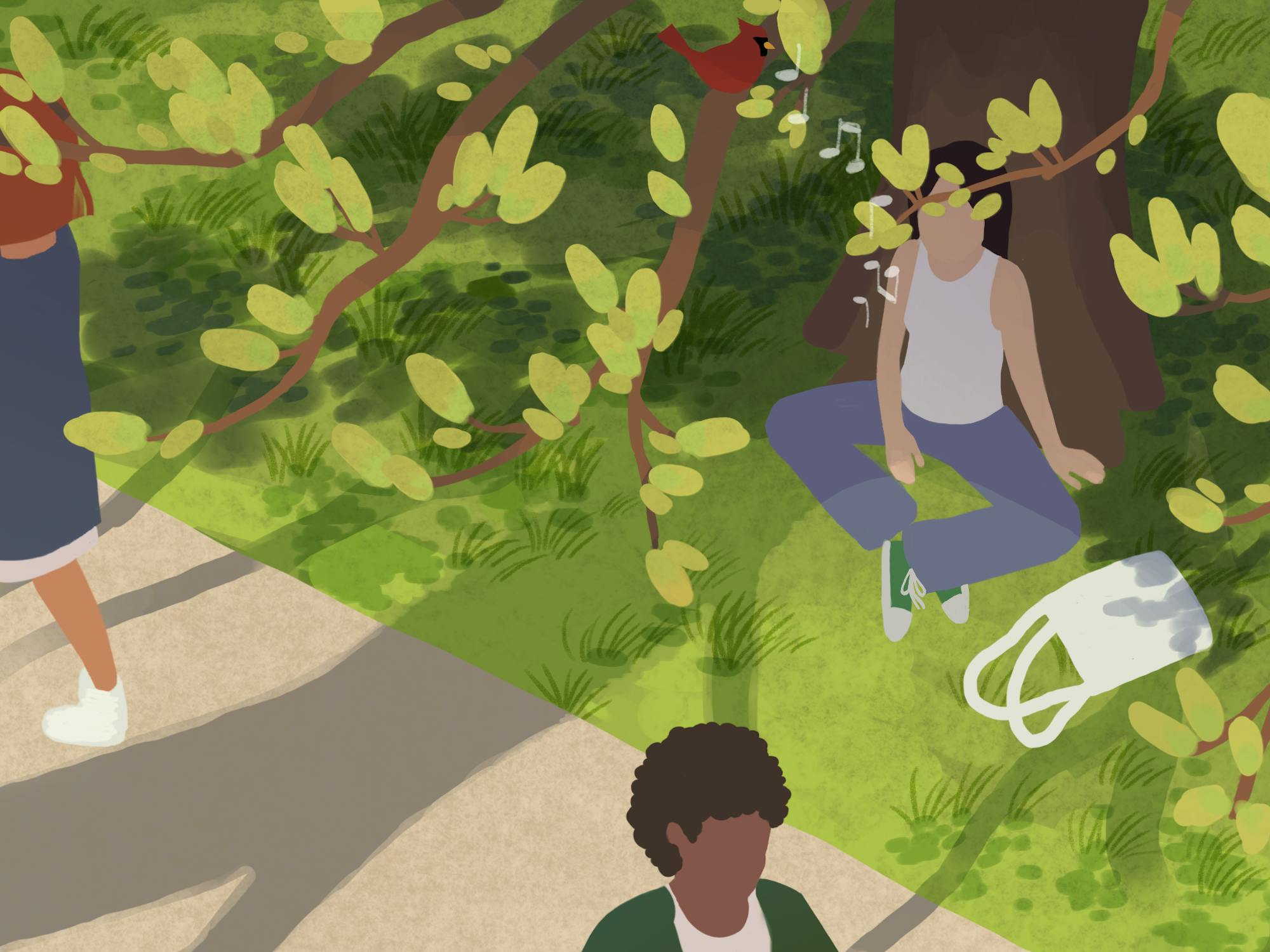“My name is like my hair: Even if I hate it sometimes, it still follows me around. It is all tangled up. One knot made by the m and the a, and another formed by the g and the d.
Magdalena.
People always remind me what a beautiful name I have. I think it’s horrible. If I had a simpler name it would be easier to introduce myself to other people. I wouldn’t have to say it as quickly as possible, hoping they won’t ask me to repeat it. Although most of the time, they do. To me it sounds like a tongue twister too complicated for them to say. Most of the time, it is.
Whenever someone learns my name, they make it sound smoother than it really is. Like turning a square into a circle, cutting away all the edges. It had too many of them anyway.”
I wrote this reflection, “A Name with Room to Grow,” for my 7th grade English class five years after moving to New York from Mexico City. In class, we were reading The House on Mango Street by Sandra Cisneros and our teacher asked us to write something influenced by a vignette in the book called “My Name.” Unfortunately for me, the speaker in the vignette—the main character Esperanza—didn’t just write about her own name, but also mine.
“At school they say my name funny as if the syllables were made out of tin and hurt the roof of your mouth. But in Spanish my name is made out of a softer something, like silver, not quite as thick as my sister's name Magdalena—which is uglier than mine. Magdalena who at least can come home and become Nenny.”.
As we read this aloud in class, I remember the teacher pausing mid-sentence and the class staring at me thinking, ouchhh. But by that point, surprised responses to my name were barely a novelty.
Even before moving to New York I’d only ever met two other Magdalenas: my grandfather’s sister (named after her mother, my great-grandmother and also my namesake), and a girl in the kindergarten class above mine, who decided to use the nickname “Mela.” When I heard that she used a nickname, I immediately asked my parents if I could do the same, but they refused. I insisted that my friend Sofia knew a lot of Sofias, my cousin Maria knew plenty of Marias, and that we knew so many Anas I couldn’t even specify a number for my argument. Meanwhile, the only young Magdalena I knew went by Mela, so I felt I should too.
Today, I’m very grateful that my parents put their foot down. They encouraged me to embrace my name. Magdalena. Not Mela. Not Maggie. Not Nenny. Magdalena.
The decision to not use a nickname did become a heavier burden after the move to New York. While the girls at my new school were lovely and nice, none of them could wrap their tongue around a name like Magdalena. But at this point it was too late to change my name. If I conceded and let them call me “Maddie,” “Mags,” or “Mag,” I wasn’t just forgoing my name, but my country and myself. I would also go against my parents who went to great lengths to choose my name for me and who made me promise not to change it.
In New York, the name Magdalena became a reminder of where I came from. Magdalena was agua de horchata, Tajín powder, and conchas. It was hugs from my grandmother, fights with my cousins, and dances with my school friends. I couldn’t erase that. I couldn’t take away a letter or two. I couldn’t make it smoother. And I definitely couldn’t say “Mag-duh-ley-nuh” with an American accent.
The only time I even considered being called something else, I immediately regretted it. I was at a summer program when a boy asked my name, and I replied, “Magdalena,” as quickly as possible.
Then, he asked if he could call me something else and, exasperated, I responded, “Sure, call me any Latin name you like.”
He proceeded to call me Pedro.
So Magdalena stayed. And even though I rushed through introductions and hated it when people asked me to repeat my name, I still carried it with something close to pride.
As the years went by, I came to respect and know the name Magdalena more and more. Magdalena wasn’t just the name of my great-grandmother, but the name of a woman who managed to raise 10 children including my beloved grandfather. It went from being “some name you could find in the Bible'' to the name of the woman who was Jesus’s companion and probably even his wife (rumor has it she may also have been a prostitute). Magdalena transformed from a name I had only ever read as Esperanza’s sister’s “ugly” name in The House on Mango Street to being the name of Magdalene Dead: Milkman’s badass sister in Toni Morrison’s Song of Solomon.
By the time I got to college, I'd stopped caring entirely whether people thought my name was weird. First off, Magdalena was the name on my acceptance letter. Second, the nine letters of my name—which I once considered too many—became insignificant compared to the hundreds of words I was assigned to write every day.
In college, people have all sorts of unique names, hobbies, clothes, and perspectives but no one judges them for it. Instead, they celebrate them.
So I would like to take this moment to amend my words from 7th grade.
My name is like my hair: hereditary, curly, and meticulously looked after. A name that’s nine letters long is hard to fit into, but it motivates me to keep trying.
Magdalena.
When people ask my name, I make sure to enunciate every syllable with its proper inflection. When people get it wrong, I don’t get mad at them. I’m also not disappointed with myself for not providing a name that would be easier to pronounce. Now, when people say my name is pretty, I believe them because my name is like me: intricate, proud, and very, very Mexican.





